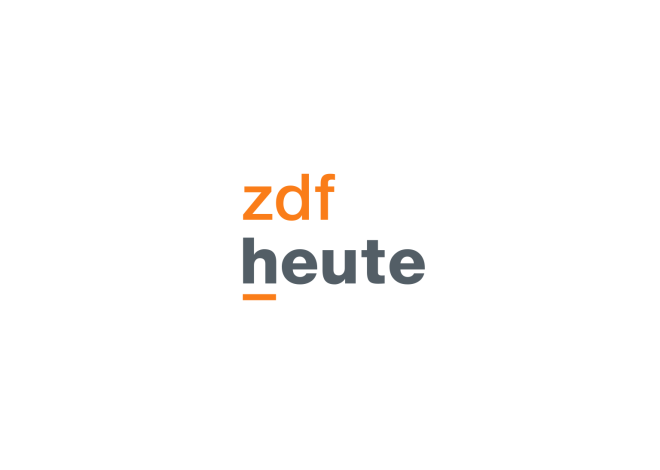
Lenovo develops AI avatars to explore the role of technology in mental health
RALEIGH, North Carolina –
Lenovo ™ today released the latest version of its Work For Humankind project, ‘Meet Your Digital Self.’ The project highlights the role that smarter technology and AI can play in driving change and supporting mental health professionals in tackling the global youth mental health crisis. This initiative addresses the challenges young people face when living different lives in the real world than online. Two-thirds (67%) of Gen Z feel their online and offline selves are disconnected, fuelling feelings of loneliness and anxiety. While nearly half (49%) of Gen Z say it is easier to express themselves online than offline, 60% wish they could have difficult conversations with family and loved ones in real life.
Sarah Kendrick, clinical director at Mental Health Innovations, the charity that runs the UK’s 24/7 SMS support service Shoutsaid: “One in eight people worldwide struggle with mental health impairment, and Generation Z is most affected, with that number rising to one in five. The type of AI innovation in Lenovo’s ‘Meet Your Digital Self’ social experiment is a promising way for generations with different understandings of online personas to meet and understand each other.”
In this first-ever social experiment, Lenovo pioneered the use of AI enabled by the company’s broad technology portfolio – from mobile phones and PCs to infrastructure, software, services, solutions and cloud. The combined technology brought the entire online personas of two Gen-Z project participants to life as lifelike avatars capable of engaging in unaffected, natural conversations.
The experiment enabled powerful, candid conversations between participants, their family members, and the avatars—conversations that might not have otherwise happened in real life. Family members were either unaware of, or did not understand and accept, their Gen Z participants’ online world: be it their career choices or their gender identity. By asking the digital avatars questions and having conversations in real time, family members gained invaluable insight into their Gen Z participants’ true selves as expressed in the online world. As a result, family members were able to better understand them and create a new connection in real life. The project is a groundbreaking proof of concept that demonstrates the positive impact technology can have in driving positive change in the youth mental health epidemic, which has been exacerbated by their difficult balancing act between two distinct online and offline identities.
The 3D avatars not only resembled each participant, but were also able to respond to conversations in real time by adjusting their tone of voice, movements and facial expressions as the conversation progressed. To do this, the avatars were trained using data taken directly from each participant’s online persona.
According to a new study from Lenovo, nearly half (48%) of Generation Z say that speaking to a trained professional would give them the confidence to speak more openly with their loved ones in the real world.
In an effort to expand mental health support and resources for people in need, Lenovo has partnered with organizations such as Shout, a free, confidential, 24/7 text messaging service in the UK; Crisis Text Line, a nonprofit organization that provides free, 24/7 confidential text-based mental health support in English and Spanish to anyone in the US and Puerto Rico; and Anata no Ibasho in Japan. These organizations train real people who are then mentored by mental health professionals, helping millions of people in need.
The digital versions of the two Gen-Z participants were created by securely merging data from their social media, blog and forum handles with their consent. The data was trained and tested, and the project was designed and brought to life using Lenovo devices, services, software, servers and cloud solutions. It is the first time ever that Lenovo solutions have come together to develop an avatar of this kind. Devices and solutions include Lenovo ThinkStation™ workstations, ThinkCentre™ desktop computers, Lenovo Legion™, ThinkBook™ and Yoga™ laptops, Lenovo tablets, ThinkVision™ monitors and accessories, Motorola Razr smartphones, ThinkEdge™ SE450 Edge Server, AI Professional Services and Lenovo | Dropbox Cloud Storage.
“Technology can become a bridge that shortens distances and makes a strong human-to-human connection faster and more accessible to people in need,” said Dr. Shairi Turner, Chief Health Officer at Crisis Text Line. “Whether someone is sitting in a classroom, attending a family gathering, or lying awake at night, the ability to have a text conversation with another human being offers comfort in anonymity and compassion without judgment. It’s truly brave to reach out and ask for support.”
Crisis Text Line reports that more than 70% of text message users are under 25. The text-based service helps people of all ages, but was designed specifically for young people, providing on-demand support via text message.
Anyone who identifies with these examples and is struggling to balance their online and offline identities and build closer relationships with their friends and family, or who simply needs advice on how to reach out to someone close to them, can contact Shout (UK), Crisis Text Line (US) or Anata no Ibasho (Japan) for support.
“We know how important a healthy digital balance is for our overall mental wellbeing,” said Emily Ketchen, global vice president and CMO of the Intelligent Devices Group and International Markets at Lenovo. “With tremendous advances in AI and smarter technologies, now is the time to explore and test creative new ways to use technologies like AI thoughtfully and responsibly for the greater good. Lenovo is uniquely positioned to lead the way here, as it has one of the industry’s broadest portfolios of smart technologies – from AI devices to IT solutions – that can work seamlessly together and benefit our society and the next generation. Ultimately, through our social experiment, ‘Meet Your Digital Self,’ we hope to spark meaningful conversations that contribute to the mental wellbeing of individuals and communities worldwide.”
Chinatsu Hoashi, Gen Z participant from Japan, commented: “Participating in the ‘Meet Your Digital Self’ social experiment has definitely helped strengthen relationships with my family. By using technology and AI, I have been able to open up more and tell them what I’ve always wanted to say. This has had a positive impact on my mental health as I can finally express feelings that I previously avoided sharing with others because I was too embarrassed.”
Oscar Jackson-Walsh, Gen-Z participant from the UK commented: “Participating in this social experiment has helped me become more confident and bridge the gap between myself and my online persona. It has also allowed me to have more open conversations with my family about my identity, which has not only made me feel more loved and accepted than ever before, but also less alone and anxious in family environments.”
You can find the videos for “Meet Your Digital Self” here: https://lenovowfh.com/
About Work For Humankind
The latest evolution of Lenovo’s Work For Humankind platform, Meet Your Digital Self, showcases how technology is bringing people together for the greater good. What began in 2020 as a glimpse into the everyday lives of 10 young women driving change in their communities has grown into a groundbreaking, multi-year movement that shows how technology can be a catalyst for change – from Robinson Crusoe Island to cities and countries around the globe. Work For Humankind delivers on Lenovo’s vision to create smarter technology for everyone through world-changing innovation.
With Meet Your Digital Self, Lenovo is opening the next chapter of this exciting campaign and aims to spark meaningful discussion about the positive impact of technology on society’s wellbeing, including support for mental health professionals.
About Lenovo
Lenovo is a $57 billion global technology company ranked 217th on the Fortune Global 500, serving millions of customers every day in 180 markets. With a bold vision to deliver smarter technology for everyone, Lenovo has built its success as the world’s largest PC maker with a pocket-to-cloud portfolio of AI-enabled, AI-ready and AI-optimized devices (PCs, workstations, smartphones, tablets), infrastructure (servers, storage, edge, high performance computing and software defined infrastructure), software, solutions and services. Lenovo continuously invests in world-changing innovations to create a fairer, more trusted and smarter future for everyone, everywhere. Lenovo is listed on the Hong Kong Stock Exchange under Lenovo Group Limited (HKSE: 992) (ADR: LNVGY). To learn more, visit https://www.lenovo.com, and read about the latest news via our StoryHub.
LENOVO, THINKSTATION, THINKCENTRE, LENOVO LEGION, THINKBOOK, YOGA, THINKVISION, and THINKEDGE are trademarks of Lenovo. RAZR® is a registered trademark of Razor USA LLC; RAZR and RAZR-Formative are used with permission of Razor USA LLC. MOTOROLA, the stylized M logo, MOTO and the MOTO family of marks are trademarks of Motorola Trademark Holdings, LLC. DROPBOX is a trademark of Dropbox, Inc. All other trademarks are the property of their respective owners. ©2024, Lenovo Group Limited. ©2024 Motorola Mobility LLC. All rights reserved.
The source language in which the original text is published is the official and authorized version. Translations are provided for ease of understanding. Only the language version that was originally published is legally binding. Therefore, compare translations with the original language version of the publication.
View original version on businesswire.com: https://www.businesswire.com/news/home/20240528166748/en/
Source: Business Wire

Ethel Purdy – Medical Blogger & Pharmacist
Bridging the world of wellness and science, Ethel Purdy is a professional voice in healthcare with a passion for sharing knowledge. At 36, she stands at the confluence of medical expertise and the written word, holding a pharmacy degree acquired under the rigorous education systems of Germany and Estonia.
Her pursuit of medicine was fueled by a desire to understand the intricacies of human health and to contribute to the community’s understanding of it. Transitioning seamlessly into the realm of blogging, Ethel has found a platform to demystify complex medical concepts for the everyday reader.
Ethel’s commitment to the world of medicine extends beyond her professional life into a personal commitment to health and wellness. Her hobbies reflect this dedication, often involving research on the latest medical advances, participating in wellness communities, and exploring the vast and varied dimensions of health.
Join Ethel as she distills her pharmaceutical knowledge into accessible wisdom, fostering an environment where science meets lifestyle and everyone is invited to learn. Whether you’re looking for insights into the latest health trends or trustworthy medical advice, Ethel’s blog is your gateway to the nexus of healthcare and daily living.



